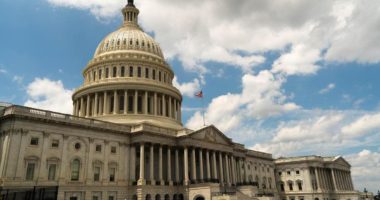On November 5, 2021, the Biden Administration published two rules outlining vaccination mandates affecting certain health care providers. The first rule, released by the Occupational Safety and Health Administration (OSHA), establishes an emergency temporary standard (ETS) requiring COVID-19 vaccinations or regular testing/face coverings for employees of large employers (100+ employees). While the OSHA rule has been stayed by the courts and faces multiple litigations, you may want to consider your options for compliance, in case it is reinstated. A statement by OSHA last week announced that they were suspending enforcement. “The court ordered that OSHA ‘take no steps to implement or enforce’ the ETS [Emergency Temporary Standard] ‘until further court order.’ While OSHA remains confident in its authority to protect workers in emergencies, OSHA has suspended activities related to the implementation and enforcement of the ETS pending future developments in the litigation.
The second is an “omnibus” vaccination rule, issued by the Centers for Medicare and Medicaid Services (CMS), affecting Medicare- and Medicaid-certified health care facilities. This article addresses the requirements of the CMS vaccination rule.
Covered Health Care Providers
These requirements only apply to Medicare- and Medicaid-certified health care providers, including, but not limited to, hospitals (a list of facilities subject to the mandate is provided in the FAQ document below). The rule does not apply to independent physician offices. However, if an allergist primarily practices at an independent physician office but occasionally provides services at one of the clinical settings covered by the CMS mandate, that allergist will be subject to the CMS vaccination requirement.
For the covered health care providers, the requirements generally apply to all employees of the facility, regardless of clinical responsibility or patient contact. All current and new employees at these facilities must comply with the requirements, such as licensed practitioners, students, trainees, volunteers, administrative staff, housekeeping and food services, etc. This also includes individuals who provide services for the facility and/or its patients under contract or other arrangements, including physicians with hospital privileges – if they go to the hospital to see patients. Individuals who provide services 100% remotely are not subject to these requirements.
Effective Date
December 6, 2021 – Covered health care providers must have the three required sets of processes in place:
- vaccination requirements,
- exemptions/accommodations, and
- tracking and documenting of vaccinations.
In addition to the processes, all eligible staff must have received their first dose of a multi-dose vaccine, or their single-dose vaccine.
January 4, 2022: Employees must have completed their full vaccination schedule (received the final shot of a multi-dose vaccine). While a lawsuit has been filed challenging the CMS vaccination rule, health care providers affected by the rule should plan to comply with the December 6, 2021 and January 4, 2022 deadlines.
Requirements Under the CMS Vaccination Rule
Under the CMS rule, Medicare- and Medicaid-certified health care providers—including hospitals but NOT independent physician offices—must comply with the following requirements:
- Mandatory Staff Vaccination: Establish and enforce policies and procedures for all staff to be fully vaccinated for COVID-19.
Unlike the OSHA rule, the CMS vaccination requirement does not allow for employees to undergo regular testing in lieu of becoming fully vaccinated. Like the OSHA rule, being “fully vaccinated” under the CMS regulation does not include booster shots. - Documentation: Track and securely document the vaccination status of each staff member. Employers must require acceptable proof of vaccination status, such as a CDC vaccination record card or photo of the same, documentation from a health care provider or electronic health record, or information from a state immunization system record.
- Exemptions: Establish and implement a process for eligible staff to request a medical or religious exemption from the vaccination requirement, based on applicable federal law. For employees who receive an exemption, facilities must develop a process for implementing additional precautions and accommodations, including testing, physical distancing, and source control.
Enforcement
The CMS vaccination requirements will be enforced through State Survey Agencies, which will conduct regular onsite compliance reviews, including recertification surveys and complaint surveys. Facility accrediting organizations will also assess for compliance with these rules. Facilities that are out of compliance, will be cited and provided an opportunity to return to compliance. Enforcement remedies for repeated noncompliance may include civil monetary penalties, denial of payment, and, as a last resort, termination from the Medicare and Medicaid programs.
For more information on the CMS vaccination requirements, please see the additional resources below:
- Full text of the rule.
- Frequently Asked Questions (FAQs).
- CMS press release.
- CMS infographic.
- CMS recorded webinar.
- Slide deck from CMS webinar on the rule.
- Equal Employment Opportunity Commission (EEOC) guidance on COVID-19 vaccinations and related exemptions.
The Advocacy Council – Advocating for the Allergist and Their Patients.


